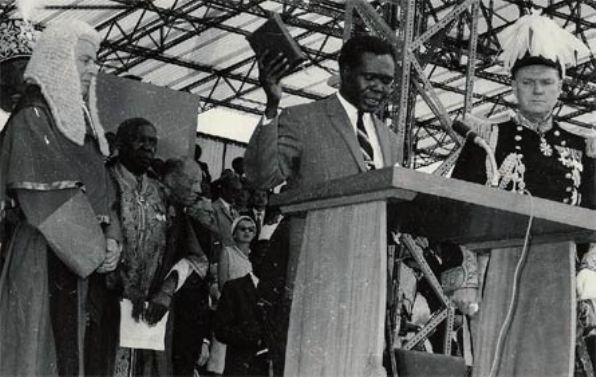The path to self-governance was not straightforward as one crucial player in these negotiations was the Kingdom of Buganda, whose interests had to be reconciled with the aims of the independence movements and the departing British.
Buganda had earlier wanted to secede and declare its independence before Uganda.
Perhaps the earliest agitation for independence was during June 1946 and 1949 Buganda aborted revolution that British termed as mere Buganda riots.
Being the largest and most influential of the traditional kingdoms in Uganda, Buganda wielded significant political and economic power prior to independence.
The Kabaka (king) of Buganda negotiated directly with the British to protect the kingdom’s status. Some historians have portrayed this as Buganda “holding up” or “delaying” independence for Uganda as a whole.
However, from Buganda’s point of view, independence talks presented an existential threat to the kingdom’s autonomy and identity within a newly independent nation-state. The Kingdom wanted safeguards to ensure that after the British departure, the central government in Kampala could not encroach on Buganda’s self-rule.
Protracted discussions between the Kingdom, independence movements, and British centered around federalism – how power would be shared or decentralized in the post-colonial country.
Buganda had advocated for a federal system that allowed for significant regional autonomy. Meanwhile, nationalist groups emphasized a unitary system under tighter central authority. While this conflict of visions led to political deadlocks, most historians now agree that Buganda’s involvement in the process was not merely obstructive.
The Kingdom’s representatives were protecting what they saw as the rights and interests of the Baganda people within an independent Uganda.
A peaceful resolution had to address these concerns to attract Buganda’s support.
In the end, compromises were found that enabled Uganda to transition to self-governance in 1962 with protections for Buganda’s special status. While the path was difficult, Buganda played an important part in shaping Uganda’s eventual independence – not delaying it, but engaging in negotiations that considered multiple perspectives in the formation of a new nation.


















